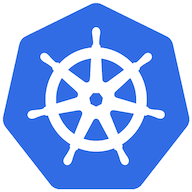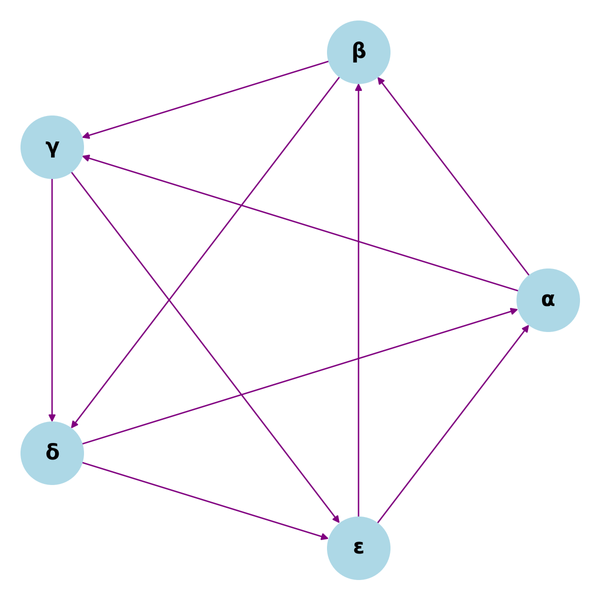Kubernetes: The Future Of Container Orchestration

Introduction
Kubernetes is an open-source system that takes care of everything from deployment, scaling, and management for your applications. It has gained much traction in the past few years, and for a good reason! Kubernetes provides many features and benefits that make it an attractive choice for organisations looking to deploy containerised applications. It is also very popular with developers, who find it easy to use and configure.
In this blog post, we'll take a look at some of the features of Kubernetes that make it such an attractive option for container orchestration. We'll also discuss some of the challenges you may encounter when using Kubernetes. By the end of this post, you should have a good understanding of what Kubernetes is and why it is becoming the standard for container orchestration.
History Of Kubernetes
Kubernetes was created by Google in 2014. It was designed to orchestrate containers on a large scale, and it quickly became one of the most popular container orchestration tools. In 2015, Google open-sourced Kubernetes, and it became a part of the Cloud Native Computing Foundation (CNCF). It is now used by some of the biggest companies globally, including Amazon, Facebook, and Microsoft. Kubernetes is also becoming the standard for container orchestration in the cloud.
What Are The Features Of Kubernetes That Make It So Attractive?

There are many features that make Kubernetes an attractive option for container orchestration. Let's take a closer look at some important ones here.
1. Ease Of Use
One of the most significant selling points of Kubernetes is its ease of use. It is designed to be simple to use and configure. Making Kubernetes a great choice for organisations that want to deploy containerised applications quickly and easily. Kubernetes also has excellent documentation. The documentation is very thorough and includes examples that show you how to use the various features of Kubernetes.
2. Scalability
Kubernetes is designed to be scalable. It can easily handle deployments of hundreds or even thousands of containers. This makes it a great choice for organisations that have large-scale deployments. Kubernetes can also scale down when necessary, which makes it very efficient.
3. High Availability
Kubernetes is designed to be highly available. This means that it can keep your applications running even if there are problems with the underlying infrastructure. Kubernetes can do this by replicating containers across multiple nodes.
4. Self-Healing
Kubernetes is designed to be self-healing. This means that it can automatically detect and resolve issues with your applications. This helps to keep your applications running smoothly and prevents outages.
5. Automatic Rollbacks
Kubernetes can automatically roll back changes that cause issues with your applications. This helps to prevent outages and keep your applications running smoothly.
How To Get Started With Kubernetes?

If you're interested in using Kubernetes, there are a few things that you need to do. First, you need to install Kubernetes. You can do this using a tool called Minikube. Minikube is a tool that helps you install and run Kubernetes on your local machine.
You can also install Kubernetes on a cloud platform like Amazon Web Services (AWS), Google Cloud Platform (GCP), or Microsoft Azure. There are several ways to do this, and the best way will depend on your specific needs. Once you have Kubernetes installed, you need to create a deployment. A deployment is a group of containers that are deployed together. You can use deployments to deploy your applications.
Once you have created a deployment, you have to create a service. A service is an entity that provides access to your application. Services are typically used to expose your application to the outside world. You can also use services to load balance traffic between multiple application instances.
What Are Some of the Challenges You May Encounter When Using Kubernetes?

While Kubernetes is a great tool, there are some challenges that you may encounter when using it. We'll take a look at some of the most common ones here.
1. Complexity
Kubernetes can be complex to use. This is because it has numerous features and options. This can make it challenging to learn and configure. Additionally, Kubernetes is designed to be scalable. This means that it can easily handle deployments of hundreds or even thousands of containers. This can make it challenging to manage large-scale deployments.
2. Security
Kubernetes is a complex system. This complexity can make it difficult to secure. Additionally, Kubernetes is designed to be highly available. This means that it can keep your applications running even if there are problems with the underlying infrastructure. This can make it challenging to protect your data and maintain compliance.
3. Upgrades
Kubernetes is constantly evolving. This means that new versions are released frequently. This can make it difficult to keep up with the latest version. Additionally, upgrading Kubernetes can be complex and time-consuming.
4. Support
Kubernetes is a complex system. This complexity can make it difficult to find support when you need it. Additionally, Kubernetes is an open-source project. This means that no company provides official support for Kubernetes.
5. Cost
Kubernetes can be expensive to use. This is because it requires many resources to run. Additionally, Kubernetes is a complex system. This complexity can make it difficult to manage. This can lead to increased costs.
Why Is Kubernetes Becoming The Standard For Container Orchestration?
Kubernetes is becoming the standard for container orchestration for a few reasons. DevOps teams find that Kubernetes is easier to use than other container orchestration tools. Kubernetes is also more scalable than other tools, perfect for cloud-based applications. Finally, Docker containers and Kubernetes work well together, making it easy to deploy and manage containerised applications.
Who Uses Kubernetes?

Kubernetes is used by organisations of all sizes, including some of the world's largest companies. A few notable users include IBM, Lyft, The New York Times, and Shopify. Kubernetes is also growing in popularity among developers. A 2019 survey found that Kubernetes was the most popular container orchestration tool among respondents. It's not hard to see why Kubernetes is so popular. The tool offers several advantages over other container orchestration tools. These advantages make Kubernetes the perfect tool for managing containerised applications.
Final Thoughts
Kubernetes is a great tool for managing containerised applications. It's easy to use, scalable, and popular among developers. So, if you're looking for a container orchestration tool, Kubernetes is a great option. Remember to do your research before getting started, as it can be a complex tool. With that said, Kubernetes is the future of container orchestration.
Additional Resources:
Official Website:

Source Code:
K3S:

MiniKube:





